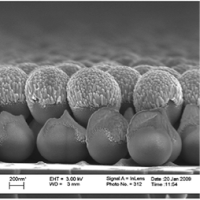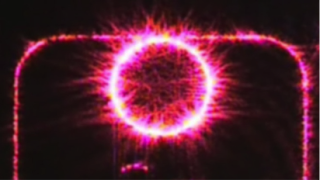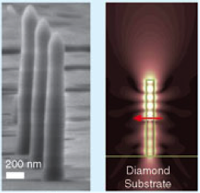Recent News
NQVL Design Phase Award
October 1, 2025
CHTM Joins NSF's NQVL Pilot Projects
August 9, 2024
OSE PHD, Dr. Xuefeng Li - Wins The Outstanding Interdisciplinary Graduate Programs Award
May 10, 2024
Dr. Ali Rastegari - 2024 OSE Best Dissertation Award Winner
May 10, 2024
News Archives
New course offered: "Advanced Topics in Modern Optics"
June 2, 2015
Fall 2015: Adv Topics in Modern Optics--Nano/biophotonics MW 17:30-18:45, Room TBDInstructor: Victor Acosta
Recommended background: E&M at the level of ECE 360/PHYC 405 or optics at the PHYC 302 level.
Introduction to Nanophotonics by Sergey Gaponenko



In this course we will learn how to tailor light-matter interactions by confining light and emitters to nanometer length scales. Through lectures, review articles, and hands-on use of open-source electromagnetics simulation tools, we will learn how to design and simulate structures exhibiting:
- Directional emission from a dipole in a nanopillar
- Fluorescence enhancement of an emitter embedded in a ring cavity
- Plasmonic-enhancement of an emitter near a metal-nanostructure surface.
Along the way we will learn about applications of these and other phenomena that are currently being pursued by nanophotonics researchers in academia and industry with a special emphasis on applications in biomedical imaging and sensing. The course will be structured as follows:
- Review of E&M theory: Maxwell’s equations, wave equations, modes, intro to plasmonics, and fundamentals of computational techniques.
- Meep tutorial, open-source electromagnetics simulation tool
- Case studies (3 total). For each, we’ll discuss a review article on an active nanophotonics research area. We will then collaboratively design and simulate (with meep) nanophotonic structures for this application. Afterwards, we will cover current hot topics in the relevant area.
- Student presentations. In place of a final exam, students will perform a case study on a nanophotonics topic of their choice. They will use meep and/or other forms of analysis to investigate the topic, and they will present results to the class.


